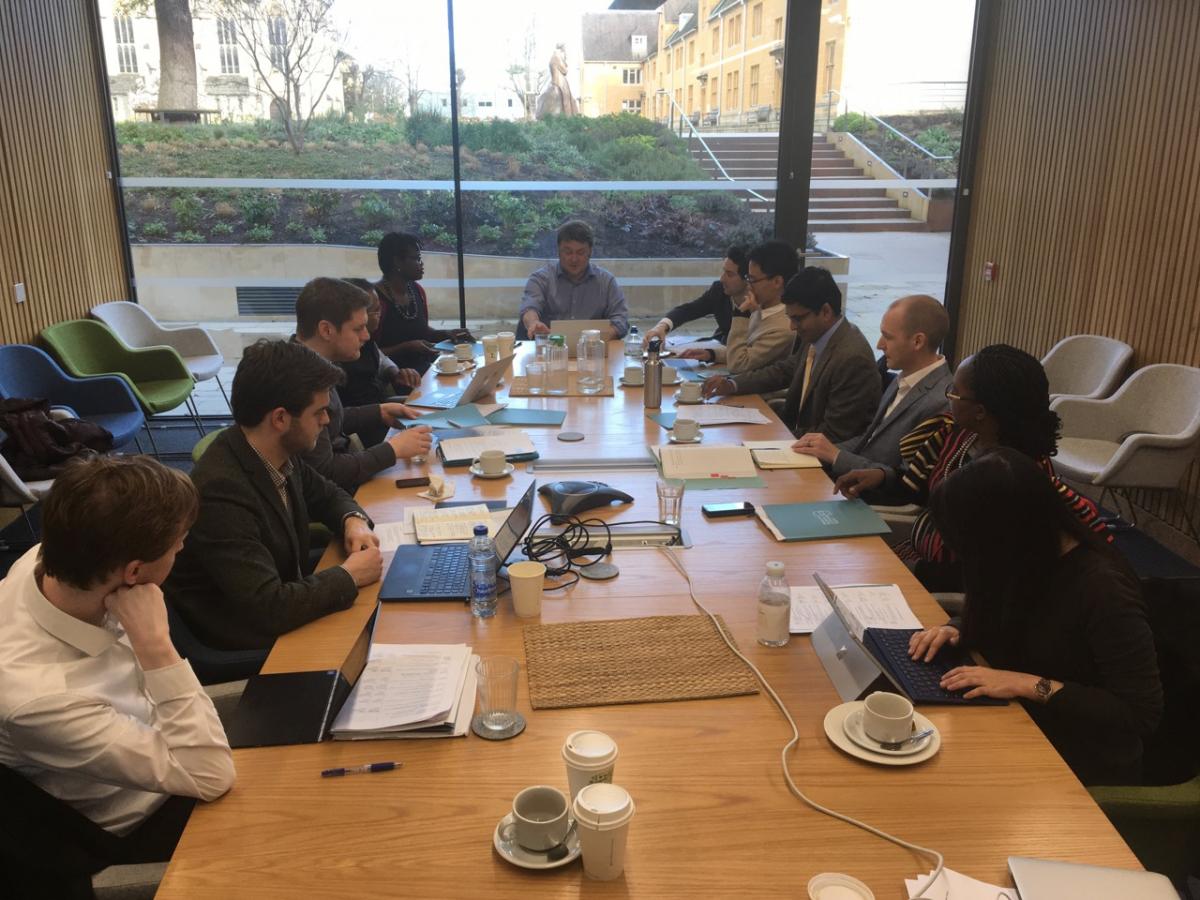Partisanship and the Constitution - Early Career Workshop
Associated people

On the fourteenth and fifteenth of March, eight early-career researchers came to Oxford to present groundbreaking work on partisanship, drawing on a broad range of jurisdictions and a diverse field of perspective. Professor Nicole Bolleyer presented the keynote address on political parties, the state and democracy.
PARTISANSHIP AND THE CONSTITUTION
We often accuse public figures of putting party before country. This project asks what that means. It explores the tension between partisanship and public duty.
Broadly speaking, scholarship about parties and the constitution is focussed on electoral law. But parties do more than fight elections. The party machine and the party-in-government also pose important constitutional questions.[1]
Partisanship is an even wider phenomenon. While political parties are partisan, partisanship is not synonymous with the activities of political parties. Partisan factions exist within parties. Some partisan groups unite multiple political parties. Some partisan groups cut across existing political parties. Structures that foster sectional accounts of the national interest, such as federalism, devolution and subsidiarity, can also be viewed through a partisan lens.
Some people think we should take partisanship out of the constitution. Some republican accounts of the constitution can treat factions with suspicion because factions subordinate the national interest to party interest. The Marquis of Condorcet[2] said “one of the primary needs of the French republic is to have none.”
One-party states like China, and no-party states like Saudi Arabia, are at ease with this monist view. However, pluralist, multiparty democracies embrace durable disagreement about the nature of the public interest. This can create tension for republican theorists. Adam Tomkins said “the problem of party” is the main obstacle to deliberative democracy in the United Kingdom.He nevertheless went on to accept the Conservative Party whip in a sectional parliament…
Some people think we should take the constitution out of party politics. Some liberal accounts of the constitution view any state interference in party politics with suspicion. Edmund Burke thought democratic politics was the product of a lackof interference and regulation. For Burke, “Parties must ever exist in a free country[3]” – they are the guarantors of political freedom, and they develop naturally in free polities.[4]
Burke’s accountinvites us to think about partisanship as sort of voluntary association.As Vernon Bogdanor notes, until the twenty first century, “political parties were treated as if their constitutional significance was akin to that of golf or tennis clubs.”[5]Lord Reid describedthe Conservative Club in this vein, as like “a woman who lets it be known among her neighbours that she is willing to take a few children into her house for some hours each day… a small bridge club which meets in the houses of its members… [or] a man who lets it be known among his friends that he would like to take a congenial party abroad.”[6]This understates the constitutional importance of parties
Moreover, in a healthy constitutional order, politics is not a state of nature. Even if the privacy of political parties is something to be cherished, parties perform constitutional functions, and we might expect them to be held accountable for this. When Justice Reed held racist party primaries to be unconstitutional in Smith v. Allright[7] he said the right to vote “is not to be nullified by [enabling] private organization to practice racial discrimination … Constitutional rights would be of little value if they could be thus indirectly denied”
As such, we can neither insulate the constitution from partisanship nor can we insulate party politics from the constitution. The constitution regulates partisan bodies, while partisan loyalty shape the operation of constitutional bodies. Perhaps for this reason, parties are enigmatic subjects of constitutional law. They can be private subjects, with private rights. They can be public utilities, bearing public duties. They can have privileged access to the state. They can be insulated from state organs like the judiciary. Yet, they are only intermittently assigned formal constitutional powers and duties, and they are often overlooked altogether.
This conference, which is the first output for our project will address the functions of partisan bodies, and especially how they form the democratic will. We will consider how partisan institutions use public power, and how that power is cabined by the constitution. In turn, we will ask how parties mediate constitutional change.
Udit Bhatia, Ewan Smith and Leah Trueblood
Oxford, 14 March 2019
[1]See Valdemar Key, Politics, Parties, & Pressure Groups(5th edn, Thomas Y. Crowell 1964), Chapter 13
[2]Quoted in Giovanni Sartori, Parties and Party Systems (Cambridge University Press 1976)at 7
[3]Edmund Burke,On Conciliation with America, 1775, p 59.
[4]See Anika Gauja, Political Parties and Elections (Routledge 2010), Chapters 1, 2, 9
[5]Vernon Bogdanor, ‘The Constitution and the Party System in the Twentieth Century’ 57 Parliamentary Affairs 717718
[6]Charter v Race Relations Board [1973] AC 868 (House of Lords)886 C-D
[7]Smith v. Allwright 321 US 649 (Supreme Court of the United States)



